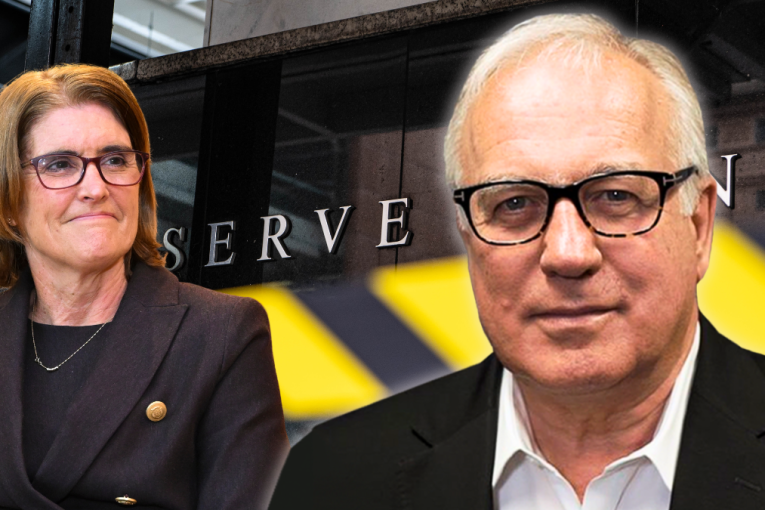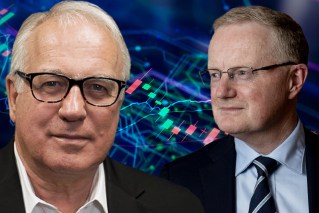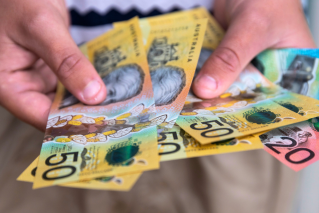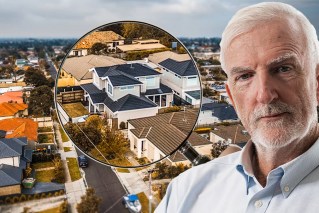Ethical ETFs: What you need to know about sustainable investment


Ethical investment is a booming industry amid growing environmental concerns. Photo: Getty
Building wealth through investing can be a guilt-free experience these days, with ethical exchange-traded funds (ETFs) now a booming industry.
ETFs are investment funds traded on listed exchanges, such as the ASX.
They are popular among novice retail traders as they enable people to invest in a diverse range of shares and other financial assets in a single trade.
That means buying units in an ETF is like buying tiny stakes in lots of different companies at once – so your eggs are not all in one basket – without having to pay a separate brokerage fee for every single company you buy into.
ETFs are hugely popular – with $23 billion invested in these types of funds in Australia alone – and so-called ethical ETFs are a big part of that.
Just over 30 per cent of that $23 billion, $6.96 billion, is invested in ETFs that choose not to invest in certain companies for ethical reasons.
And there are plenty of different products on the market – meaning you should be able to find a fund that allows you to build wealth without betraying your values.
But you have to read the small print.
Don’t take their word for it
Just because a fund describes itself as being ethical or environmentally conscious doesn’t mean it will match your understanding of what that means.
Some funds slap an ‘ethical’ label on their product but continue to invest in companies that cause environmental or social harm. This is known as ‘greenwashing‘.
Other companies may just define ‘ethical’ differently to you. Perhaps they invest in gas companies but draw the line at coal producers and tobacco companies.
So it’s not enough to just search for the ‘ethical’ label. You have to review the fund’s holding details on the fund manager’s website, which will list all the companies that the fund invests in.
The big players
The four big ETF players in Australia are BetaShares, ETF Securities, Vanguard and VanEck.
A few smaller operators are offering ETF products as well – and Tuesday marked the launch of sustainable investment group Australian Ethical’s first ETF.
BetaShares economist David Bassanese believes his group has the toughest ethical vetting process.
BetaShares is Australia’s largest ethical ETF provider, accounting for about 60 per cent, or $4.1 billion, of the $6.96 billion currently invested in these products in Australia.
“We don’t invest in companies involved with alcohol, tobacco, pornography or fossil fuels – and we have a gender screen so that companies need to have at least one female on their board,” Mr Bassanese told TND.
Australian Ethical also doesn’t invest in tobacco, pornography, companies directly involved in making weapons, or those that make the bulk of their money from fossil fuels. (You can read its full ethical criteria here.)
International investment giant Vanguard has $35 billion under management in Australia in ETFs and other funds.
It takes a less restrictive approach than BetaShares, cutting out gambling, alcohol, pornography and tobacco.
But when it comes to fossil fuels, Vanguard only has an outright ban on coal.
Oil and gas investments are permissible where the company concerned does not get the majority of its income from these products.
Focus on the positive
There is also a growing range of funds that focus on investing solely in a particular sector or product.
ETF Securities, founded by Australian Graham Tuckwell, one of the fathers of ETFs, have funds specifically aimed at the hydrogen economy, as well as lithium and other metals used in renewable energy and battery storage.
They also offer another that invests in robotics.
ETF Securities spokesman Chad Hitzeman said the hydrogen fund “is ESG [environment, sustainable, governance] by default”.
“It does have specific investment filters, but also because it’s a cleaner technology it fits the ESG filter,” he said.
The battery metals fund, however, does not have specific filters.
It broadly fits into the ESG category because it is aiming at developing clean energy technologies. But it also invests in some companies that other ethical funds would not.
“Lockheed Martin is in the portfolio because they were working on flow battery technology,” Mr Hitzeman said.
“But, of course, they also produce armaments and advanced military technology, so it’s a matter of a certain kind of pragmatism being involved.”
That pragmatism also extends to mining, which for some ESG filters would be a hard no.
But ETF Securities sees the mining of rare earth minerals used for clean energy technologies, such as electric vehicle batteries, as crucial in the transition to cleaner energy.
The group’s robotics fund also has an unusual filter.
Although it permits some investments that would be caught by a more typical ESG filter, it does not allow money to be invested in products that might use robotics for negative ends.
The New Daily is owned by Industry Super Holdings










